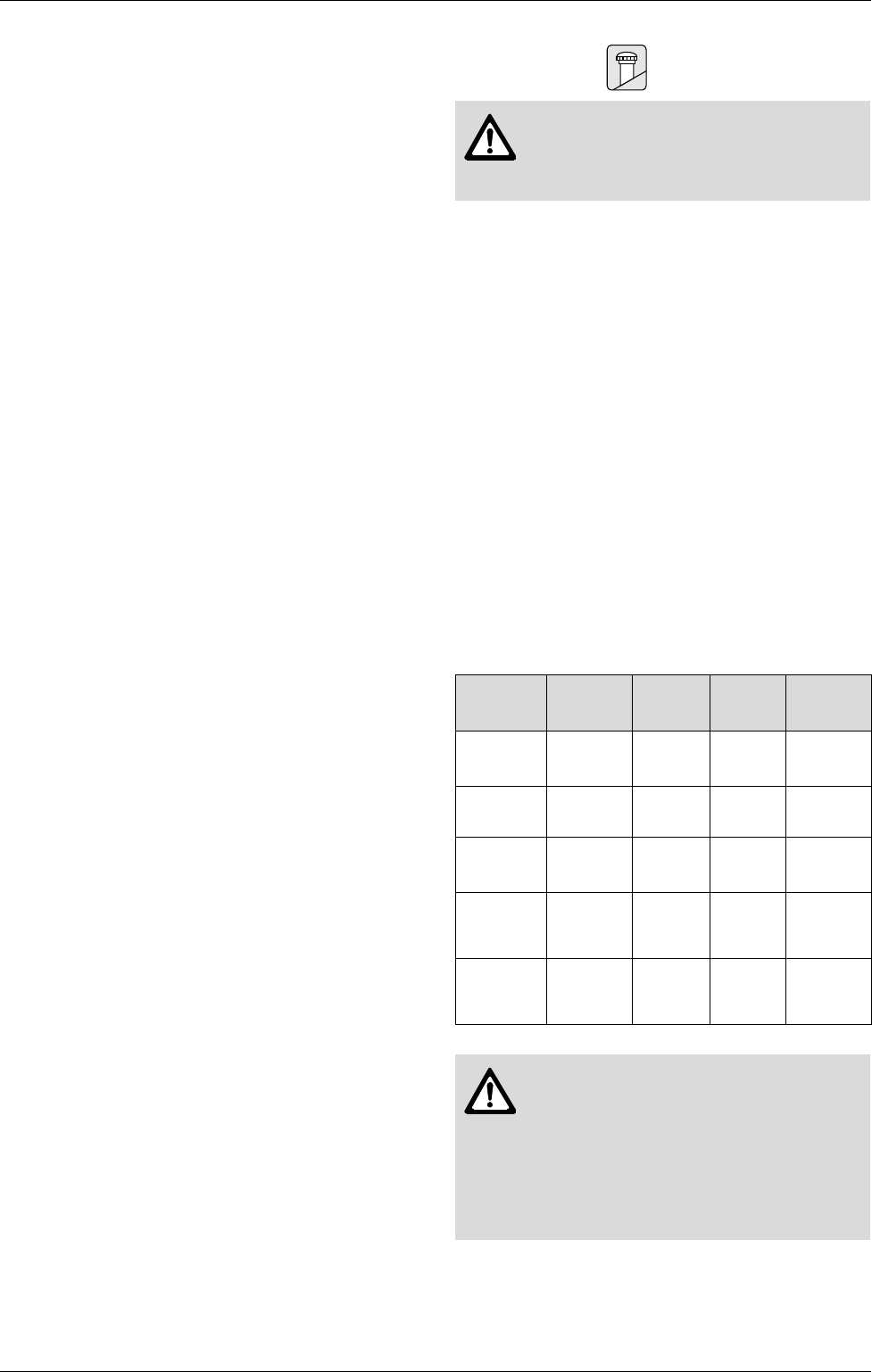
6 720 607 072
Appliance details
9
construction, infiltration air is normally adequate to
provide air for combustion.
• Appliances located in confined spaces:
The confined space must be provided with two
permanent openings, one commencing within 12
inches (304.8mm) of the top and one commencing
within 12 inches (304.8mm) of the bottom of the
enclosure. Each opening must have a minimum free
area of one square inch per:
– 1000 Btu/hr (292.81 Watts) if all air is taken from
inside the building
– 2000 Btu/hr (585.62 Watts) if all air is taken from
the outside by horizontal ducts
– 4000 Btu/hr (1171.24 Watts)if all air is taken from
the outside by direct openings or vertical ducts
Or the confined space must be provided with one
permanent opening or duct that is within 12 inches
(304.8mm) of the ceiling of the enclosure. This opening
must have a minimum free area of one square inch per:
– 3000 Btu/hr (878.43 Watts) if all air is taken from
the outside by a direct opening or vertical duct.
Louvers, grills and screens have a blocking effect, when
used, increase the sizes of your openings by 300% for
wood louvers (as wood type will reduce the free air by
75%) and 40% for metal louvers (as metal will reduce
the free air by 30%). Refer to the National Fuel Gas
Code for complete information. In buildings of tight
construction all air should be taken from outside.
NOTE: It is not recommended to use interior
room air (SINGLE PIPE vent system) in areas that
commonly experience below freezing
temperatures. Clothes dryers, furnaces,
woodstoves, bathroom or kitchen fans or other
gas appliances can create negative air pressure
when operating by removing air from the
building. Cold air will be drawn back into the
building, and if drawn through the water heater a
freezing situation may occur. TWIN PIPE (room
sealed) method of venting is recommended, see
page 12.
NOTE: When installed in beauty shops, barber
shops, or other facilities where chemicals that
generate corrosive or flammable products such
as aerosol sprays are routinely used, shall be
installed as sealed unit following the TWIN PIPE
SYSTEM method of venting.
2.9 Venting
NOTE: This appliance's exhaust must be vented
to the outside1 with sealed stainless steel vent
pipe (AL29-4C), the minimum vent length is 3 feet
(a 90 degree vent elbow is equivalent to 2 ½ feet).
The appliance's flue gasses are under positive
pressure and must travel through a stainless
steel 3" or 4" pipe that is sealed gas tight.
NOTE: The exhaust collar on the water heater is
3" diameter and its collar must always be used, a
3" to 4" increaser will be required to be first
connected to the exhaust collar when 4" venting
is used. Different stainless steel vent
manufacturer's have different joint systems, do
not mix vent pipe or joining methods from
different manufacturer's.
Stainless steel vent pipe is equipped with sealing
gaskets for ease of installation, proper safety
and durability. The heater shall not be vented in
combination with any other appliance; the
appliance must only be vented with a dedicated
sealed vent system.
Establish vent clearances that comply with the vent
manufacturer's specifications. In all cases follow local
codes. See table 3.
Warning: Do not reduce the vent
(exhaust and combustion) pipe sizes
and do not common vent with any other
vented appliance or stove.
Z flex Protech Heat Fab BBTNA
3” VENTING
3” Horizontal
Terminal 2SVSTB03 FSTB3 9390 TEE 2SVSTB03
3” Vertical
terminal
2SVSRCF03 FSRC3 5300CI 2SVSRCF03
4” VENTING
Requires a 3”
to 4” Increaser 2SVI0304 FS0304TI 9374 2SVI0304
4” Horizontal
terminal
2SVSRTF04 FSTB4 9490TEE FXHOOD
4” Vertical
terminal
2SVSRCF04 FSRC4 5400CI ----------
Table 2 Terminals/Adapters Part Numbers
Caution: The vent system must be
installed by a qualified agency in
accordance with these instructions. If
improperly installed a hazardous
condition such as explosion or Carbon
Monoxide poisoning could result.
BBTNA will not be responsible for
improperly installed appliances.


















